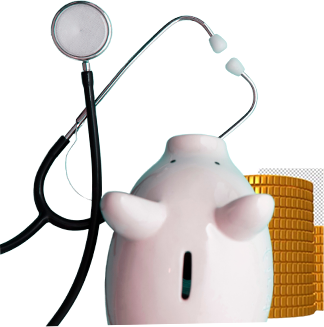PERSONALIZED DIET PLAN FROM
Nutrition for Kidney Stones

Contact Us
Kidney stones form when certain minerals and salts cluster together in the kidneys, often causing sharp pain and potential health issues. While hydration and genetics may play a role in their formation, the dietary pattern definitely plays a significant role in affecting the chances of forming or having a recurrence of stones. A customized and proactive approach to nutrition for kidney stones can minimize stone formation and enhance long-term kidney health.

Why Work with a Nutritionist for Kidney Stones?
Preventing or managing is far from just avoiding a few ingredients in a daily meal. Every particular type of kidney stone, be it calcium oxalate, uric acid, struvite, or cystine, has its list of triggering factors. A registered clinical nutritionist for Kidney stone studies the patient’s stone type, history, and lab reports, then proceeds to develop a customized diet plan on a condition basis.
Tailored nutrition provides clarity on what to eat and what to avoid, which nutrients one should consume moderately, and how to work on proper hydration levels. Generic diet charts may cause imbalances of nutrients, whereas expert-type directions would set forth a safe and organised way for kidney health.
Key Nutritional Components for Kidney Stone Prevention
A successful diet for kidney stones requires a careful combination of fluid levels, mineral intake, and types of food eaten. For any kidney-stone-prevention diet to be effective, first realise how certain nutrients promote stone formation.
Hydration: Adequate water intake is a must. One must aim for 2.5 to 3 litres per day to dilute minerals in urine, which may prevent or at least reduce crystal formation.
Calcium from Food: Earlier opinions against it have been reversed by new findings; dietary calcium binds with oxalates in the intestinal tract, and thus, less oxalate will be absorbed into the bloodstream.
Oxalates: Foods such as spinach, beets, or certain nuts are oxalate-rich foods. Oxalates may, if not carefully managed, bind with calcium and form stones.
Sodium: A high salt intake is associated with increased levels of calcium excreted in urine, thereby increasing the likelihood of stone formation. Reducing sodium intake mitigates this risk.
Protein: A substantial amount of animal protein upsurges uric acid levels and decreases citrate, which is a natural obstacle to stone development. Plant-based replacements are placed back into balance.
If kept in check, these factors combine to make a diet for kidney stones that prevents recurrence and maintains health.

Common Nutrition Plans for Managing Kidney Stones
Usually, individualized diet planning with nutrition for kidney stones considers the preferences of an individual, lab findings, and stone composition. Some common approaches include the following:
- Low-Oxalate Diet: This involves avoiding nuts, spinach, chocolate, and other foods that are high in oxalates, which is important for preventing calcium oxalate stones. Mealtime combinations of calcium-rich foods with Foods that contain oxalates can help reduce the percentage of oxalate absorption in the body.
- Low-Sodium Diet: These include processed snacks, fast foods, and packaged foods, to name a few. Avoiding such foods helps keep calcium levels in the urine low.
- Increase Citrate Plan: Intake of citrus fruits, including lemons and oranges, may enhance urine citrate levels, protecting against stone formation.
- Balanced Protein Intake: Moderation should govern protein intake. Incorporating legumes, tofu, and lentils instead of excessive red meats and seafood helps to control uric acid levels.
- Foods with Calcium but Have Cautious Supplement Intake: You need to balance the minerals, and it is better to get calcium from foods such as yogurt, milk, or leafy greens instead of swallowing it as a supplement.
A diet for kidney stones needs to be set up by qualified dietitians and nutritionists who may align the recommendations with the current kidney function and medical reports.
Recommended Foods to Prevent Kidney Stones
As in culinary practices, the appropriate selection of ingredients at the right time helps curate a diet to prevent kidney stones and align with the desired outcome. Here is a list segregated into foods to be taken versus foods to avoid for better results.
Best Foods to Eat:
- Citrus fruits: Fruits like Lemons, limes, and oranges are also rich in citrate, which depresses the chance of kidney stone formation by the kidneys.
- Low-Oxalate Vegetables: Cabbage, bell peppers, cucumbers, and cauliflower; healthy and safe.
- Whole Grains: Brown rice, quinoa, and oats provide fiber and do not pose any risk for stone formation.
- Calcium-Rich Foods: Low-fat dairy helps reduce the absorption of oxalates through the digestive system.
- Legumes: Lentils, peas, and beans are abundant sources of plant proteins and are a great choice for individuals wanting to limit their consumption of animal protein.
Foods to Avoid:
- High-Oxalate Vegetables: Spinach, beet greens, and okra, especially if you suffer from calcium oxalate stones.
- Red Meat and Organ Meats: They raise uric acid levels and may cause uric acid stones.
- Ready-to-eat and Packaged Snack items: Salt-rich foods increase calcium levels in the urine, raising the chance of stone development.
- Soft Drinks and Colas: These give adverse effects in the form of phosphates and added sugars, which might elevate stone risk.
- Vitamin C Supplements (excessive levels): These excess intakes get changed into oxalate inside the body.
A guided diet for kidney stones can make it easier to have all the needed nutrients without taking the risk of stone formation.


Ways to Prevent Kidney Stones
Awareness has to be kept constant through daily habits. One of the surest ways to prevent recurrence and aid kidney health is to follow a diet to prevent kidney stones. Here are some wonderful ways to stop stone formation:
- Stay Hydrated: Drinking water consistently during the day enhances the body’s ability to keep the urinary tract clear by washing out minerals that may potentially form stones. Keeping water nearby serves as a cue to sip frequently.
- Keep the Weight Correct: Being overweight predisposes one to metabolic disorders, among which are kidney stones. By maintaining weight, you can eliminate the chances of kidney stones
- Avoid Excess Proteins: This means a nitrogenous balance between animal and vegetable proteins to prevent excessive uric acid accumulation.
- Stay away from sodium: Avoid processed foods that contain a lot of sodium, or at least try to cut down on them.
- Eat Out in Moderation Oxalate: With meals containing oxalates, have some form of calcium so that its absorption is minimized.
- Better to keep a Check on Calcium: Calcium supplementation might be a risk factor when overdone, but dietary calcium prevents stones.
If one can put into practice these variations, their risk of recurrent kidney stones gets drastically reduced, and the long-term outlook for a healthy kidney improves with a proper diet to prevent kidney stones.
Why Choose QUA Nutrition for Kidney Stone Care?
QUA Nutrition carries out a complete assessment to understand lab work, history, and present health symptoms before drawing nutrition plans that adhere to clients’ lab results or stone type until follow-up monitoring and readjustments may be made for life.
- Comprehensive assessment of the individual’s health status and medical history informs tailored strategies aimed at optimising specific needs and mitigating identified risks.
- Customised nutrition diet for kidney stones based on laboratory results and the type of stone.
- Continuous evaluation and modification for effective permanent outcomes.
Each client receives dedicated support from experienced nutritionists for kidney disease who recognize the complex issues surrounding renal nutrition. With detailed food guides, educational tools, and progress tracking, QUA Nutrition ensures that clients are equipped to take control of their kidney health through expert dietary choices. Get a kidney-friendly diet plan from our expert dietitian or nutritionist. Contact us now!

Our Success Stories
Q: What foods are helpful in the prevention of kidney stones?
A: Incorporating citrus fruits, low-oxalate vegetables, dairy with high calcium and fibre-rich grains into daily meals can help in the prevention of kidney stones.
Q: Is milk contraindicated for kidney stone patients?
A: No. Milk contains calcium, which assists in binding oxalates in the intestines, thereby helping to reduce stones.
Q: Is there an association between increased water intake and a reduction in kidney stones?
A: Yes. Adequate water intake dilutes urine, which reduces the concentration of stone-forming minerals, thus lowering the risk of stone formation.
Q: Should individuals with kidney stones restrict their salt intake?
A: Yes. High salt intake increases urinary calcium excretion, which may lead to the formation of stones.
Q: Does lemon water have any benefits?
A: Of course, lemon water does help in preventing kidney stones because it is high in citrate, a compound that lowers the chances of developing stones in the kidneys.


